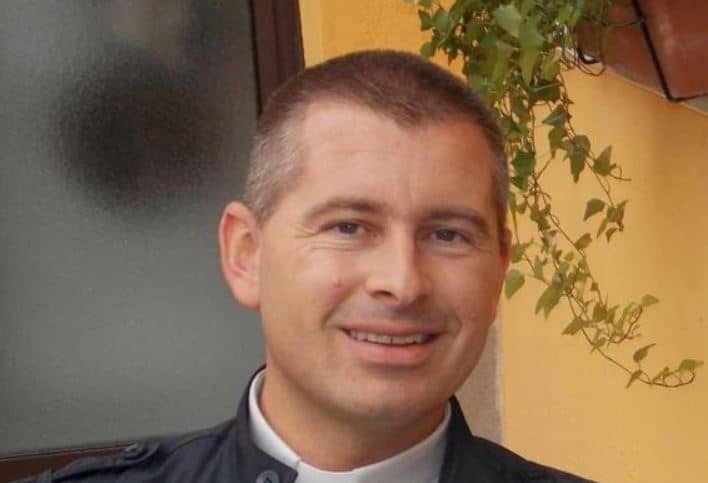ROME – Beginning on Monday, over 8,000 migrants either swam around border fences that jut out into the Mediterranean Sea or simply walked across the border at low tide to leave Morocco and enter the Spanish enclave of Cueta, one of nine populated Spanish territories in northern Africa.
The massive influx has created both a humanitarian and political crisis, as Spain accuses Morocco of effectively launching an invasion by relaxing its border controls, while Morocco faults Spain for interfering in its internal affairs by allowing a rebel leader to receive medical treatment at a Spanish hospital for a coronavirus infection.
As ever, the Catholic church is caught in the crossfire, scrambling to address immediate humanitarian needs and also to defuse political tensions.
“I ask the Lord to assist our political leaders to find a solution to the serious problem that Ceuta is experiencing,” said Cardinal Juan Jose Omella, president of the Spanish bishops’ conference, on Wednesday. “May the most vulnerable brothers and sisters not be the ones most harmed.”
As the waves of migrants poured into the enclave, Spanish President Pedro Sanchez ordered an unprecedented deployment of army troops and traveled personally to Cueta, vowing to “defend the territorial integrity” of the country.
Approximately half of the migrants who entered Ceuta were returned to Morocco immediately, including unaccompanied minors who, according to Spain’s law, were supposed to have stayed under the care of the state. The rest of the 4,000 new arrivals are now in overcrowded industrial warehouses waiting for someone to decide their fate.
Catholic NGOs, including the local office of Caritas, as well as the parishes on the ground, opened their doors to try and welcome the migrants, provide them with food and other necessary goods until a decision is made regarding their future.
Several Spanish bishops addressed the situation through social media, but few spoke at length about the crisis, with the exception of Bishop Rafael Zornoza of Cadiz and Ceuta, who told Vida Nueva that beyond what the reports show, “we must underline the situation of panic that this has caused among the people of Ceuta, coupled with great insecurity and the feeling of instability of public order.”
“We must also add the fear of the health crisis of the coronavirus that was finally being overcome after very difficult weeks, and it seemed that everything was in danger,” he said. “The situation is complex. Now things are changing. However, we must not forget that we are facing one of the borders of the world where there is a greater inequality from one side to the other. We know that this attraction becomes a desirable aspiration for many.”
Zornoza also argued that Christians have reacted “well” to the sudden influx of migrants, overcoming their initial uneasiness and demanding the attention of the institutions. The Church has already criticized the opportunism of using the weakest as a political weapon or bargaining chip, and even more so in the case of children, he said.
“If we are already ashamed of how many die at sea on a regular basis, how can we not be moved by this tragedy and by the murky interests that are emerging?” he said, calling on politicians to work together to find a solution.
Speaking about what the diocese is doing to help the migrants, Zornoza said that the local church has a long history of commitment in the front line, and they’re very conscious that they are to act following Pope Francis’ guidelines on the matter: welcome, protect, promote and integrate.
Migrants, he said, “do not scare us, we feel compassion for them, we usually take care of them.”
“In the recent events that have occurred at breakneck speed, we have reacted quickly, especially by improvising the reception and protection as far as possible, applying the criteria in the midst of a very tense conflict situation,” Zornoza said. “It is obvious that in every historical moment the events that take place do not follow the same forecasts nor can we act with the usual routines, but we have been there.”
Parishes, he said were given the order to collaborate through Caritas, that is providing front line support and providing humanitarian aid. In addition, parishes were also called for migrants, so that the crisis could be overcome.
“We have a clear obligation to accompany the people,” he said.
“The parishes have also been very sensitive to the reality of those who suffer, relying first of all on the suffering of the faithful of Ceuta themselves, who have experienced moments of panic due to the increase in population, fear of riots or destruction, but who, at the same time, are compassionate towards the poor and feel the desire to help,” the bishop said.
Follow Inés San Martín on Twitter: @inesanma

















